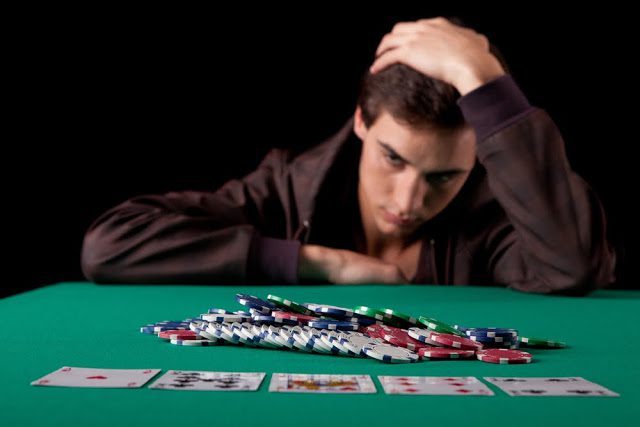Winning is supposed to be a climatic event of closure. Winning is the ultimate experience, validating the need to win, compensating for other losses, and providing the hope as well as assurance that everyone can, indeed, be a winner. What happens when winning isn’t conclusive, but instead the revving of an engine, the catalyst which sends a compulsive need to keep playing and win bigger into full forward action? Gambling is never a guaranteed win, which is what draws people to gambling the most. There is always a risk, a heart rate increasing, neurotransmitter producing risk, fueled by pleasurable sensations, win or lose. The win is never enough. A loss is just an obstacle to a win. A big bet has to be outdone by a bigger bet. For gambling addicts, the stakes are never quite high enough. Consequently, many gambling addicts find themselves in deep financial debt, dangerous situations with bookies or debt collectors, and strained relationships with their loved ones.
Gambling addiction is an ultimate fallacy and illusion because the favor will always be for the house, not for the player. An obsessive and compulsive disorder, gambling is one of the only process addictions which has been legitimized as a diagnosable mental health disorder. Gambling addiction activates all of the same areas of the brain that chemical dependency does. Similar to drug and alcohol addiction, those living with gambling addiction face symptoms of withdrawal, cravings, and a compulsive need to continue gambling despite worsening negative consequences.
Gambling And Co-Occurring Disorders
Gambling addiction is rarely a stand alone disorder, though it is possible. Casinos, illegal gambling houses, and other environments where gambling is happening is usually accompanied by a copious flow of alcohol. Drug and alcohol addiction is commonly co-occurring with gambling addiction as are other mental health disorders. Anxiety is common with gambling addiction as can be bipolar and depression. Gambling addiction can be a compulsive behavior formed as a coping mechanism to regulate difficult emotions caused by mood and personality disorders, or to deal with the effects of trauma.
Gambling Addiction Recovery Is More Than Quitting The Game
To fully recovery from gambling addiction, one must take an integrative approach to healing the mind, the body, and the spirit. Gambling addiction and the various stresses caused by gambling addiction affects all three areas and necessitates recovery in all of them.
Cottonwood provides proven treatment for gambling addiction and co-occurring disorders. Our integrative approach to treatment has been critically acclaimed for over 20 years as leading the industry in co-occurring treatment. For information, call us today by dialing (888) 727-0441.







